Historian Julie Golia Is Excited To Be Wrong
September 27, 2019 | Filed in: Woman of the Week
Just like much of history itself, Julie Golia evades categorization—she’s a historian of media and gender, but she’s also a podcast host, soon-to-be-published author, and the vice president for curatorial affairs and collections at the Brooklyn Historical Society. When she isn’t at her job or taking care of her 6- and 1-year-old, she is finishing a book about the history of women’s advice columns. Here, she talks about the importance of women’s stories, why she loves being wrong, and how her best mentors are her work peers.
I GREW UP IN AN ITALIAN-AMERICAN FAMILY with a lot of strong women, and from a young age I was interested in women’s stories. In my early teens, I went to the Franklin Delano Roosevelt museum in Fishkill and became obsessed with Eleanor Roosevelt. I read Blanche Wiesen Cook’s biography of her, and though I didn’t realize it at the time, it provided important structural lessons about the nature of gender, sexism, and intersectionality—whose stories were privileged and whose weren’t. That was the early origin of how I got into gender history and storytelling.
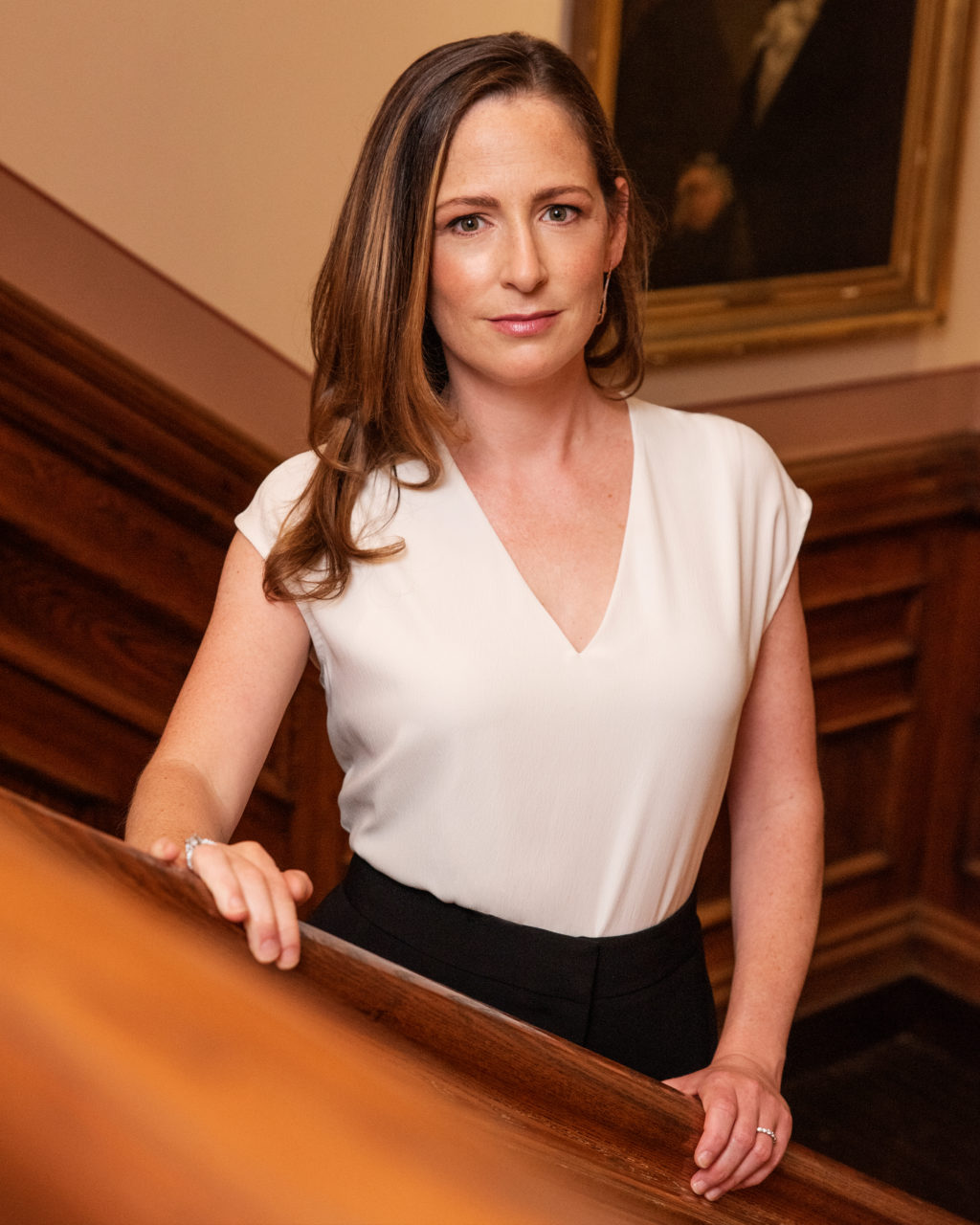
The Joan top, the Pippa pant, and the Westbury earrings.
PEOPLE TEND TO THINK THAT STORYTELLING is separate from history, and it’s not. Stories are an incredibly important source for people who want to know history from the bottom up, which includes knowing about ordinary people, not just extraordinary or well-documented people. Oral history has become a fundamental source base for filling in holes in the historical narrative. We have an oral history portal at the Brooklyn Historical Society that you can access online, and it has hundreds of oral histories, mostly people talking about their families—where they grew up, the food that they ate, how their neighborhood operated, and the kinds of schools they went to. We can all relate to those things, and that is the bread and butter of history.
Want more M.M.? Sign up for our newsletter.
MY APPROACH TO HISTORY is about acknowledging and finding creative ways to bring life to the silences in historical records. The Brooklyn Historical Society does a great job of that, but the institution itself is also an example of power relations affecting the historical record. BHS was founded in the 1860s by the wealthiest people in Brooklyn at the time, as many cultural institutions were. They collected things based on what they saw as the important historical themes, which was themselves. We have the most comprehensive collection related to the history of Brooklyn, but there’s a lot that’s missing—all the things that weren’t collected for so many different reasons. And it’s our responsibility now to attempt to fill those holes, and also to incorporate the silences into the work that we do.
A GOOD EXAMPLE OF ONE OF THE HOLES in our collection came up when I curated an exhibition called Personal Correspondents: Photography and Letter Writing in Civil War Brooklyn. We looked at the role of war letters and photography in the maintenance of personal relationships during the course of the war. We also wanted to honor every kind of person from Brooklyn who fought in the civil war, which would of course include black Brooklynites. But I looked at every single one of the 1,200 letters in our collection, and I couldn’t find one letter from a black Brooklynite. Then I went through literally all the archives in the entire city, and I still couldn’t find one. Finally, I was looking through an article from the 1940s and found a mention of a letter of an African American man from Connecticut who was corresponding with someone from Brooklyn. We were able to borrow that letter from Duke University and feature it, which was lucky. But still—there were about 200,000 black soldiers in the civil war. The lack of letters is a huge hole in what we know about them, and it has a real impact on the way people understand the war today. We wound up incorporating that hole into the exhibition, and asking, “Why do we have what we have? And why don’t we have what we don’t have?”
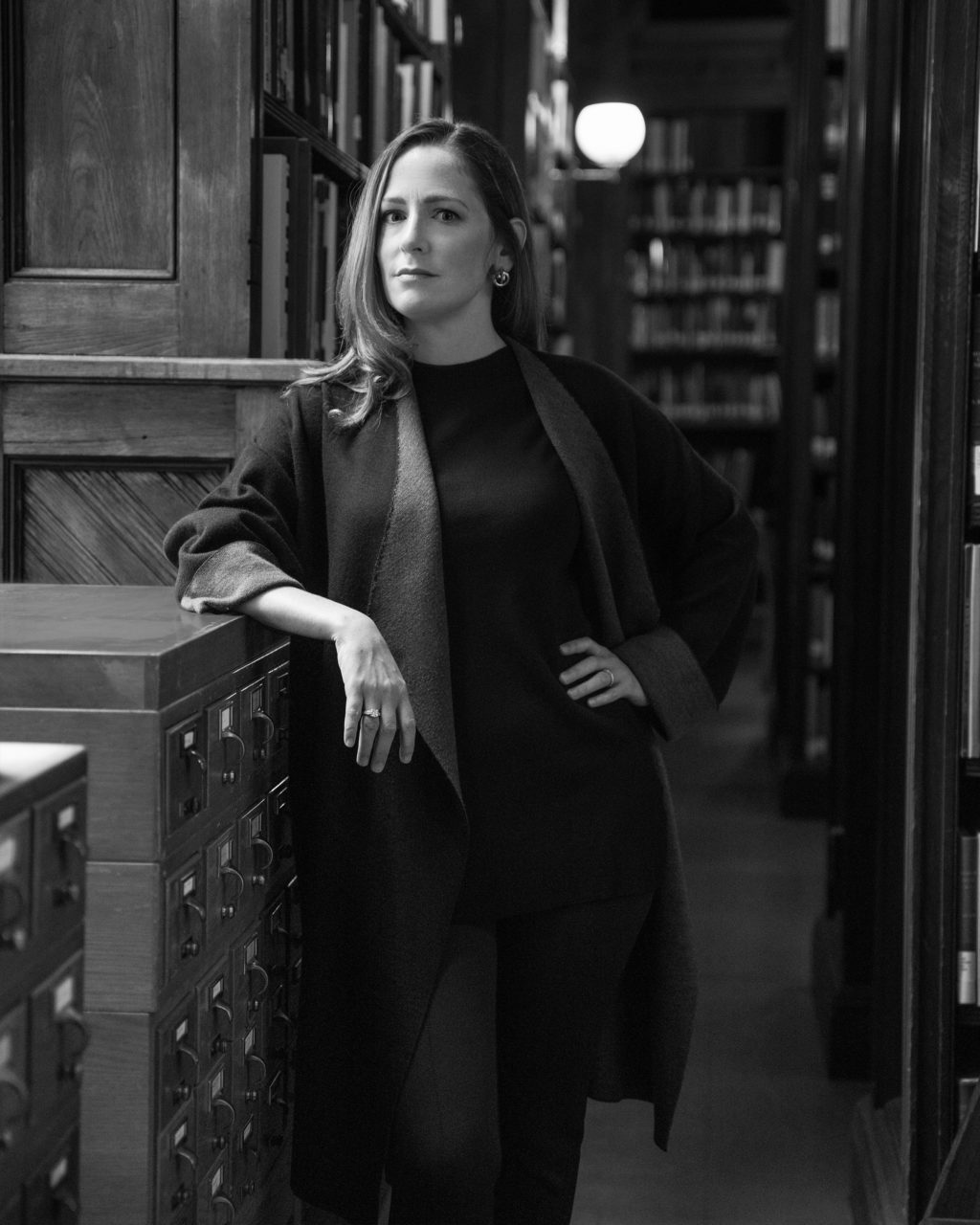
The Dougherty jacket, the Giulia top, the Foster pant, and the Roberta earrings.
WHAT I LOVE ABOUT HISTORY IS THAT IT CONSTANTLY CHANGES. There is no right history. There’s definitely wrong history. But there’s no, “Yes, we’ve gotten to the bottom of it.” History is a fundamentally iterative thing, and if you can accept that, then studying history is a lot easier. If you can make conjectures and be really creative about finding sources to support it, then you can construct something really magical. At the same time, you have to love the possibility that your idea is going to get blown up, and that your conjectures are totally wrong. It means that you’re discovering something that isn’t obvious.
WHEN I GRADUATED FROM COLLEGE, I THOUGHT I wanted to be a professor. That was my vision for myself. But I didn’t want to go straight to graduate school, so I got a job as a production assistant and assistant editor on a documentary. It taught me very practical work skills, like rights clearance and fundraising and asset management. And it also made me excited about working for the public. So by the time I went to graduate school, I wasn’t so sure if I wanted to be a professor anymore.
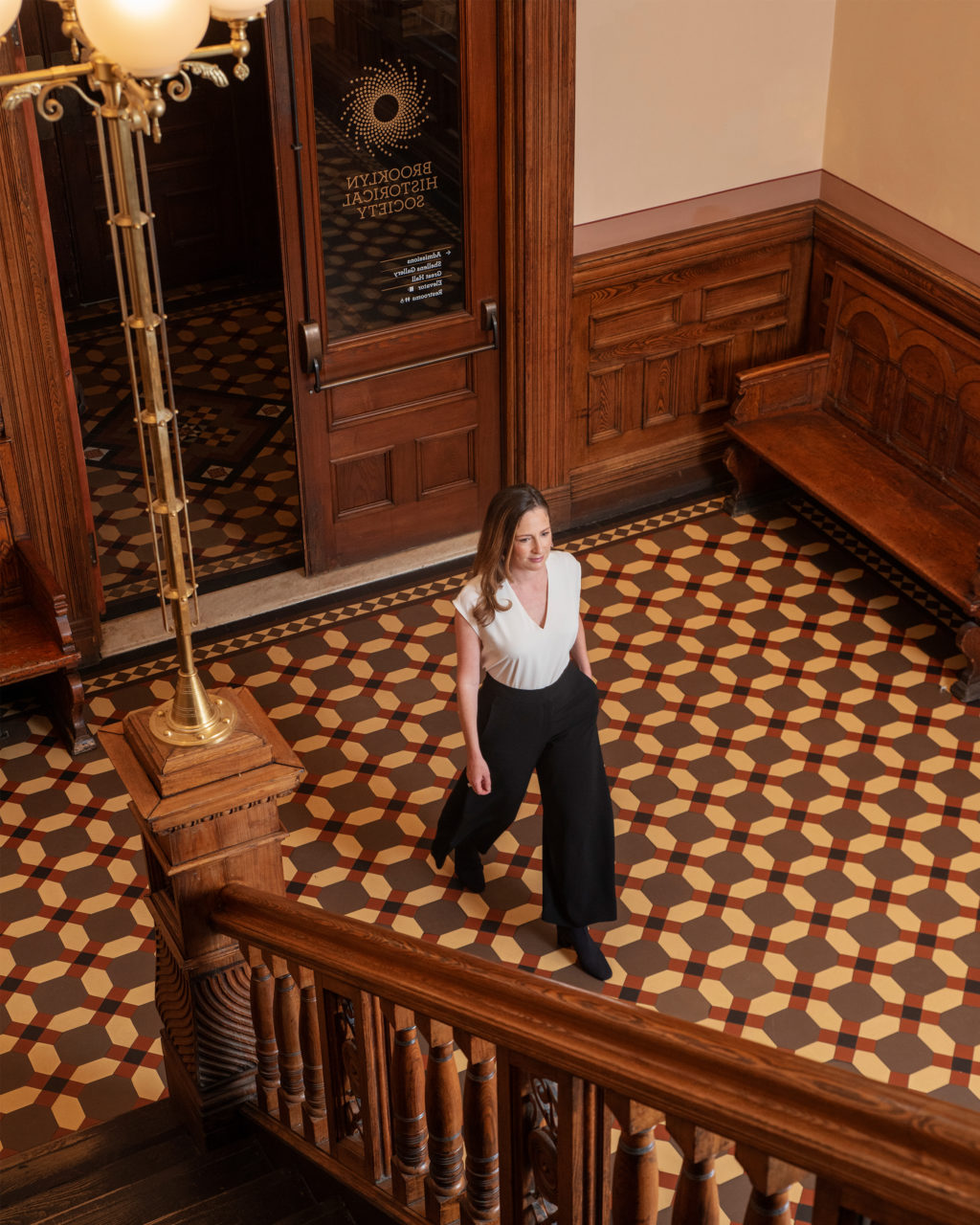
The Joan top, the Pippa pants, and the Zelda boots.
GETTING A PHD IS REALLY LONELY. I think any person who writes a dissertation goes through a dark period at some point during that process. One of the things that kept me going is that I kept doing public history work. I became a licensed New York City walking tour guide, and I gave tours all over New York for the better part of a decade during graduate school and a little bit after. It’s one of the best jobs I ever had, and it taught me to tell stories and answer hard questions on the spot. Then I started working for different museums, including the New York Historical Society, which provided connections that helped me get my first job after graduate school.
RIGHT AFTER I HAD MY CHILDREN, I went through a phase of thinking, “Maybe I should have been a psychologist.” I liked the idea of being able to set your hours. Or working many hours for three days and then having more time off with your kids. But I don’t ever regret my career choice intellectually. I think I am one of those rare people who actually gets to say that I love what I do. My son is six, and I love that he lives in a world where his mother loves her work. That is his foundation of the world, and I’m very curious to see how that will play out over the course of his life, because I think it’s enormously powerful.
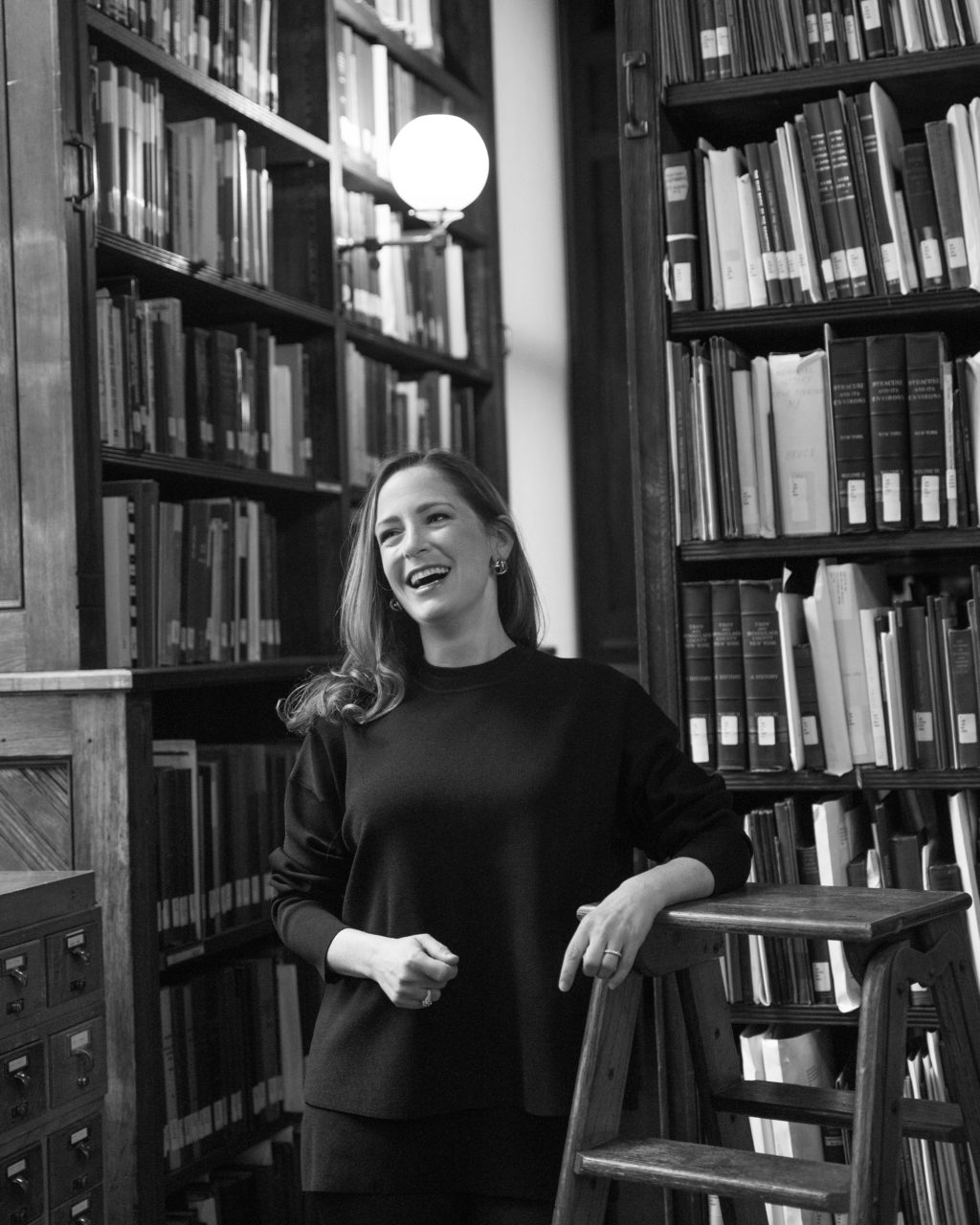
The Roberta earrings, the Giulia top, the Para pullover, and the Foster pant.
BECOMING A MOM IS BAPTISM BY FIRE. What really helped me through it was going back to work. My sense of identity is so wrapped up in being a historian and a curator and a teacher. So when I was on maternity leave, I was like, “Who am I? Where has my life gone?” Having that touchstone of my career was really important.
THE BIGGER QUESTION, OF COURSE, IS HOW TO BALANCE motherhood and career, and I don’t know the answer. I really don’t. Before I had my second child, I would wake up at 5:00 every morning and work on my book. And then, last year, I asked for a six-week sabbatical to finish it. I was enormously disciplined, and I got it done. But it wasn’t sustainable. Right now, I have a six-year-old and a one-year-old, and a full-time job and book edits to do. I’m in survival mode. What gets me through is knowing that this won’t last forever. Soon, I’ll be able to go running again, and read books again, and maybe even knit again. Just remembering that makes everything much more doable.
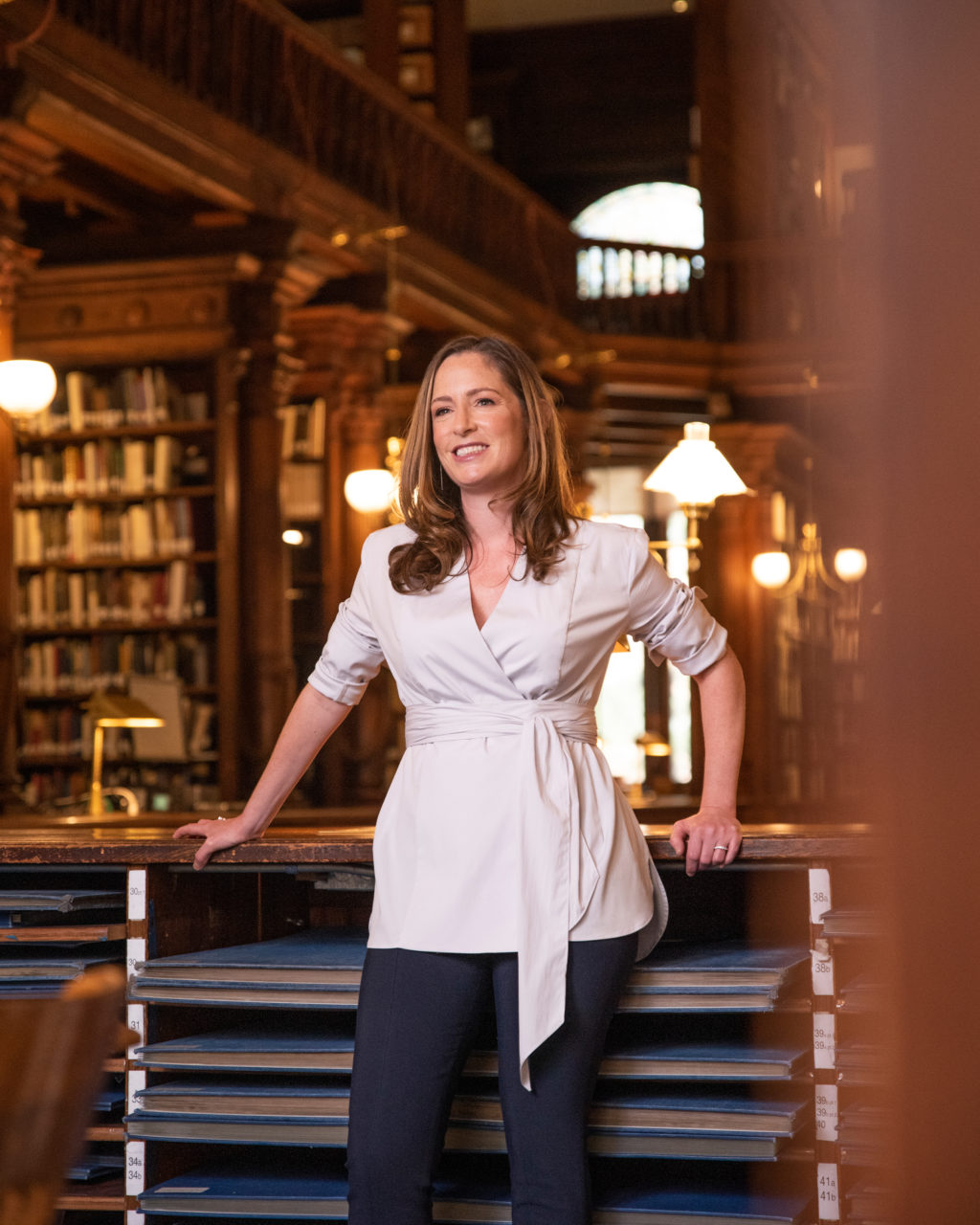
The Miyuki shirt and the Foster pant.
SOME OF MY BEST MENTORS RIGHT NOW are my peers at my job who are also trying to balance parenting and work. Those two responsibilities are so fundamentally different and at odds, and it really helps to be in the trenches with other people who are doing it too. One minute, you’re like, “Oh my god. My daughter keeps waking up at 4:45 in the morning. Should I put her to bed earlier? Should I feed her?” You bore yourself just thinking about it, but it consumes your whole life. Then, the next minute you’re making substantive decisions about, say, the library staff model and exhibition budgets. If I didn’t have my colleagues who are also working moms or young parents, I think I would go nuts. They’ve been a huge source of support.
Want to nominate a Woman of the Week? Email us at womanoftheweek@mmlafleur.com.
Photos by Matthew Priestley. Styling by Nyjerah Cunningham.





